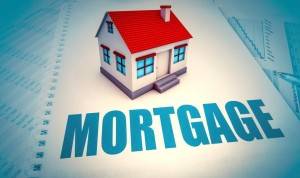Key
Players in the Mortgage Industry in Ghana
The mortgage industry in Ghana has
developed significantly over the years, with several key institutions driving
its growth. These players include banks, non-bank financial institutions,
development finance institutions (DFIs), and government agencies. Here is an
overview of the main participants:
1. Major
Banks Offering Mortgages
- First National Bank Ghana (formerly GHL Bank): A market
leader, controlling approximately 34% of the mortgage market as of recent
reports. It pioneered innovative products and long-term funding mechanisms
for homebuyers.
- Stanbic Bank Ghana holds a
significant market share, around 21%, offering a range of mortgage
products tailored to different income levels.
- Republic Bank, known for its expertise in property
financing, holds about 17% of the market.
- Ecobank Ghana: Also a notable participant,
accounting for approximately 12% of the market.
These banks dominate the mortgage sector,
jointly controlling over 84% of the market​
2. Specialized
Non-Bank Financial Institutions
- Ghana Home Loans (now part of First National
Bank): A pioneer in the private mortgage sector, this
institution revolutionized housing finance in Ghana by mobilizing
long-term funding from DFIs and other sources. It facilitated access to
homeownership for middle-income earners.
- HFC Bank (now Republic Bank): Historically
significant in mortgage financing, HFC was instrumental in shaping Ghana’s
mortgage landscape by offering structured home financing options​
3. Government
and Public Sector Interventions
- National Housing and Mortgage Fund (NHMF): This
initiative supports affordable housing and reduces the cost of mortgages
denominated in local currency. It has played a role in increasing access
for public sector workers and other groups.
- Home Finance Company (HFC): Established
with government support, it laid the foundation for mortgage financing in
Ghana before becoming a fully-fledged commercial bank​
4. Development
Finance Institutions (DFIs)
DFIs, such as the International Finance
Corporation (IFC) and African Development Bank (AfDB), have supported mortgage
institutions like Ghana Home Loans by providing long-term funding. These funds
enable the development of mortgage products that suit the Ghanaian market.
5. Regulatory
and Policy Support
- Bank of Ghana (BoG): Oversees
financial institutions engaged in mortgage lending to ensure compliance
with laws and regulations. The BoG also implements measures to stabilize
the financial environment and facilitate long-term lending.
- Land Administration Project (LAP): Helps
streamline property registration processes, enhancing the reliability of
collateral for mortgages​
Challenges
and Opportunities
Despite the contributions of these key
players, the industry faces challenges such as high interest rates, inadequate
long-term funds, and affordability constraints for most Ghanaians.
Collaborative efforts between public and private sectors, including leveraging
pension funds and improving economic stability, could further deepen the
mortgage market and increase accessibility​
These institutions collectively form the
backbone of Ghana’s mortgage industry, addressing housing deficits and creating
pathways to homeownership while navigating economic and regulatory challenges.


